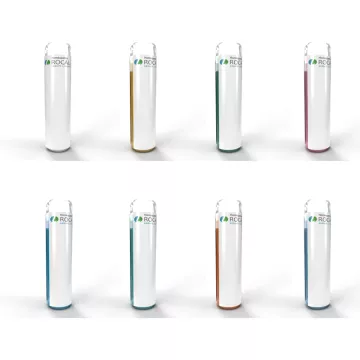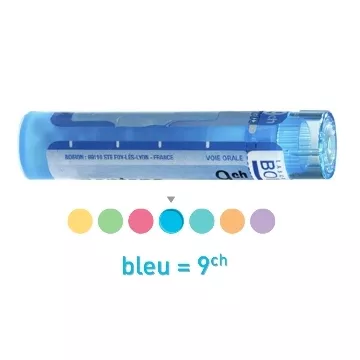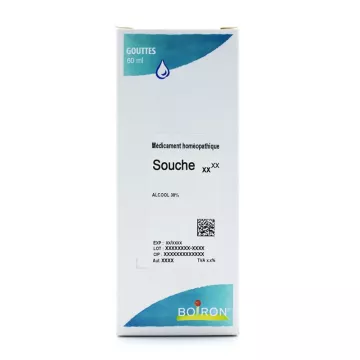






What is kidney stones and how do they form?
Renal lithiasis, also known as kidney stones, refers to the formation of hard crystals composed of minerals and salts that form inside the kidneys. These stones can develop when urine is too concentrated, allowing minerals to crystallize and join together. Factors contributing to this concentration include low water intake, certain diets, and specific medical conditions.
What are the symptoms of renal lithiasis?
Symptoms of renal lithiasis can vary, but often include intense pain in the back or side, under the ribs, pain when urinating, pinkish, red or brown urine, nausea, vomiting, and increased or urgent urinary frequency. If you experience these symptoms, it's crucial to consult a healthcare professional.
What are the main causes of renal lithiasis?
Causes of renal lithiasis include dehydration, certain diets high in protein, sugar or salt, digestive disorders, medical conditions such as hyperparathyroidism, and certain medications. Genetics may also play a role.
How is kidney stones diagnosed?
The diagnosis of kidney stones can be confirmed by imaging tests such as ultrasonography, computed tomography (CT scan), or intravenous urography (IVU). These methods enable the size, shape and location of the stones to be visualized.
What treatment options are available for kidney stones?
Treatment of kidney stones depends on their size and location. Small stones can often be eliminated by increasing fluid intake and taking medication to help them pass. Larger stones may require more invasive treatments, such as shock wave lithotripsy, a procedure that uses sound waves to break up the stones, or minimal surgery.
How can kidney stones be prevented?
Preventing kidney stones often involves staying hydrated, moderating protein, salt and sugar intake, and maintaining a healthy body weight. It's also advisable to limit oxalate-rich foods such as spinach and almonds if you're prone to this type of stone.
Are there any possible complications from kidney stones?
Complications can include urinary tract infections, obstruction of urine flow, and kidney damage. Proactive management and prompt treatment are essential to minimize these risks.
What impact does renal lithiasis have on quality of life?
The pain and symptoms associated with renal lithiasis can significantly affect quality of life. However, with appropriate treatment and lifestyle changes, many people are able to effectively manage their condition and reduce the frequency of painful episodes.
What role does nutrition play in the prevention and treatment of renal lithiasis?
Nutrition is crucial in the prevention and treatment of renal lithiasis. A balanced diet helps reduce the risk of new stone formation. Recommendations include limiting sodium and animal protein intake, increasing fluid intake, and moderate calcium intake from food rather than supplements. It's also advisable to limit oxalate-rich foods, such as beets, chocolate and nuts, if you're likely to form calcium oxalate stones.
Are there any recent advances in the treatment of renal lithiasis?
Advances in the treatment of renal lithiasis include less invasive and more effective techniques for stone fragmentation and removal. For example, percutaneous nephrolithotomy enables large stones to be removed through a small incision in the back, while shock wave lithotripsy remains the method of choice for medium-sized stones. In addition, the use of flexible ureteroscopy allows access to stones in all parts of the urinary tract, improving success rates without recourse to open surgical procedures.
What impact do genetic factors have on renal lithiasis?
Genetic factors can significantly influence the risk of developing renal lithiasis. Certain hereditary conditions, such as cystinuria or primary hyperoxaluria, increase the propensity to form specific stones. Knowledge of family history can therefore be a key factor in prevention and the choice of appropriate treatment strategies.
How does lifestyle influence the risk of renal lithiasis?
Lifestyle has a direct impact on the risk of developing kidney stones. Regular physical activity helps maintain a healthy weight and promotes the regular passage of urine, thus reducing the concentration of minerals that can form stones. Avoiding smoking and reducing alcohol consumption can also reduce the risk of stone formation.
Do patients with renal lithiasis require special medical attention?
Yes, patients suffering from renal lith iasis often require regular medical follow-up to monitor the condition of their kidneys and prevent the formation of new stones. This follow-up may include regular blood tests to check kidney function, urine tests to detect abnormalities, and recurrent ultrasounds or scans to monitor the presence of new stones. Proactive management of the condition with the help of a healthcare professional can help reduce the frequency and severity of future episodes.